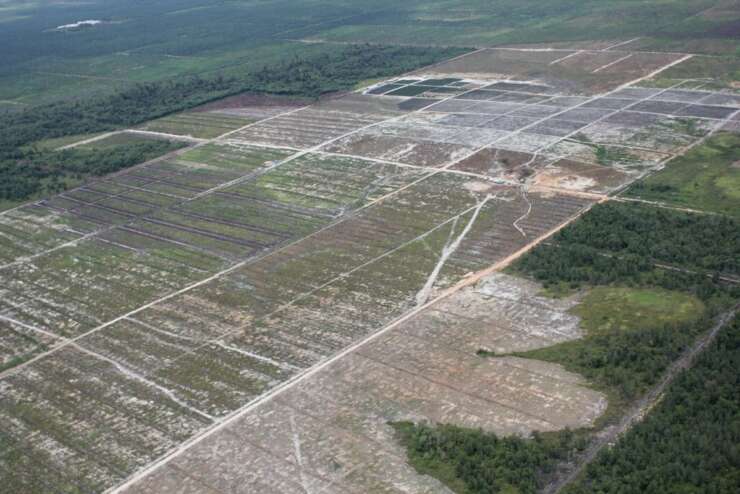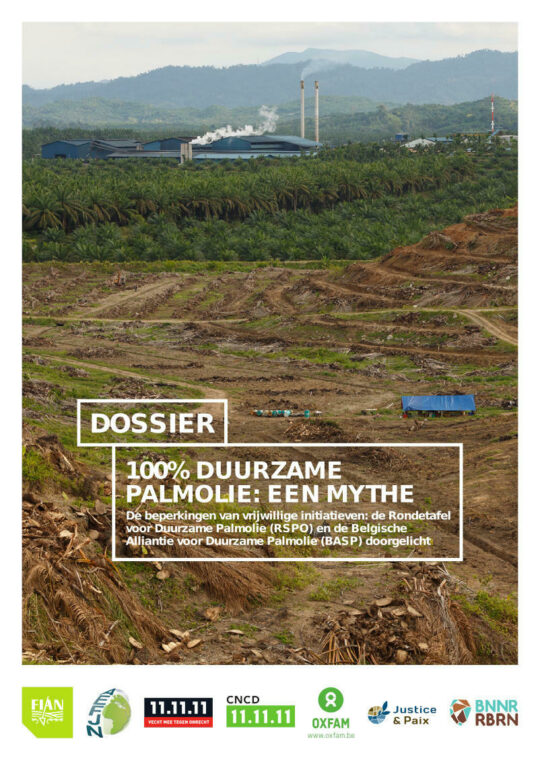As consumers increasingly became aware of these problems, the international quality mark RSPO was created. RSPO is committed to promote the use of sustainable palm oil and verifies whether it is produced in a responsible manner. Among other things, the organization stands for full transparency, protection of the environment, favorable working conditions and respect for local legislation'. The label makes sure that the product consists of 95% certified palm oil.
Reality, however, isn’t always that pretty. 11.11.11 has previously denounced the fact that the RSPO criteria are not nearly strict enough. According to 11.11.11, this is due to the lack of independent control and sanctions. It is misleading to speak of sustainable palm oil when at the same time there are still major problems, even at RSPO companies. Several RSPO sister companies are committing violations and continue to get their hands dirty with social exploitation, poor working conditions and forest fires. As a consumer, it is impossible to know whether the palm oil in your product was produced sustainably or not. The RSPO label should at least be a minimum requirement for palm oil.
The Fair For Life label, then, does apply stricter measures than RSPO. Their requirements are the following: no child labour, trade union freedom, no discrimination, safe and healthy working conditions, acceptable working hours and living wages, no forced labour. In addition, Fair For Life always promotes stable trade relationships and a cost-effective minimum price for producers. What’s more, trade is always conducted with respect for local communities. Companies that wish to label their product with Fair For Life must prove that they act correctly throughout the entire supply chain.







